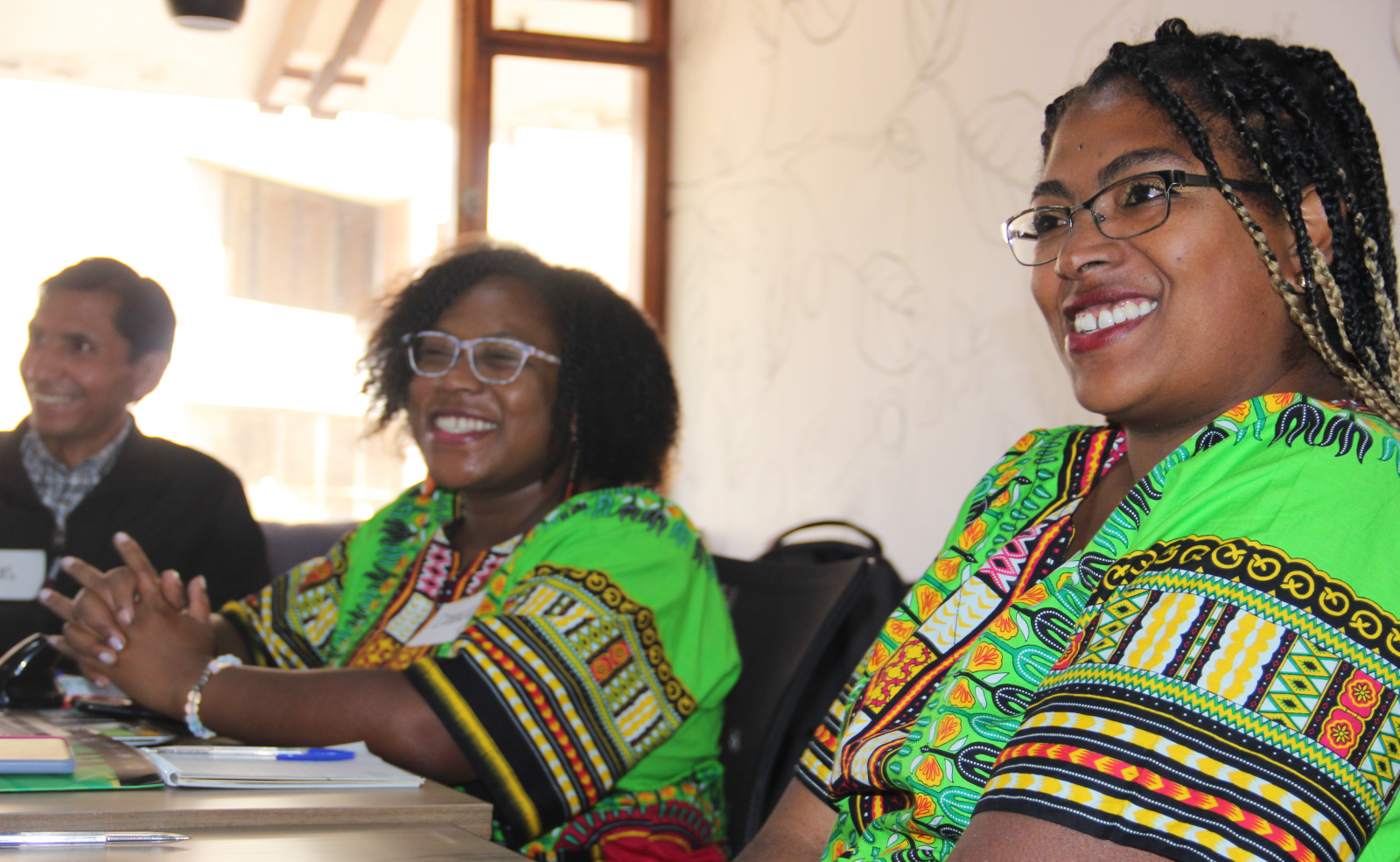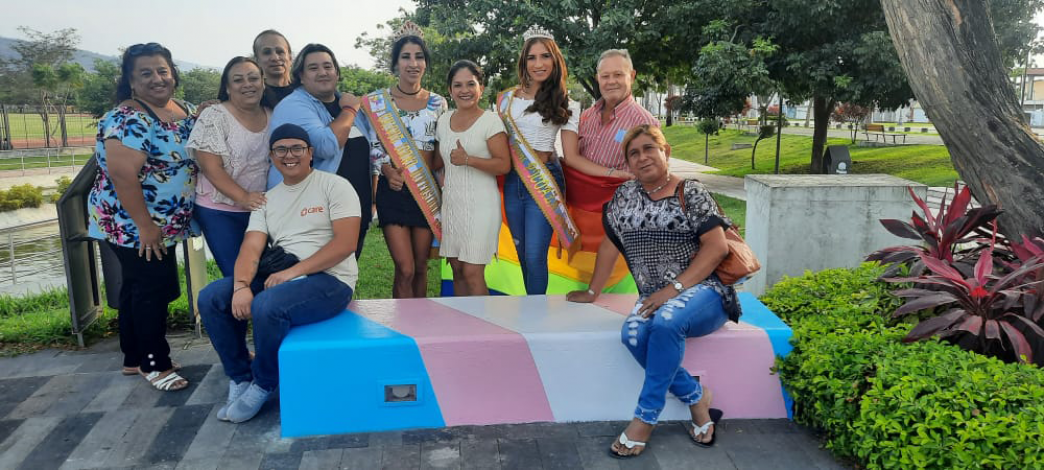
SHARE
The benefits of high levels of interpersonal trust, community engagement, government responsiveness and acceptance of all groups are almost too many to list. Democracy is more successful in societies with these attributes. To promote greater citizen engagement at the local level in Ecuador, NDI and local partners strengthened cooperation between local governments and civil society to address the needs and rights of marginalized groups and promote stronger and more interconnected communities in the country. Over the past year, NDI worked with Ecuadorian partner the Esquel Foundation (Fundación Esquel) to support advocacy initiatives from eight local Ecuadorian organizations. NDI and Esquel trained partners on identifying and solving problems in their own communities, creating advocacy plans, communicating with and advocating to local governments, digital storytelling and peacefully resolving conflicts. NDI and Esquel also facilitated communications between local organizations and governments and trained local officials on skills to better engage civil society and respond to advocacy. A member of a municipal council reported that “the agenda of these groups is important; we are learning about follow-through and how to continue strengthening the actions of citizens, whose voices need to be heard and whose demands need to be met.”
Much of NDI’s and Esquel’s work under this program aimed to increase community solidarity and autonomy. For example, the Indigenous Women’s Association for Excellence (Allipak Warmi Tantanakuy, or AWT) worked with the Cotacachi cantonal government to analyze and improve the Indigenous justice system. The Cinnamon and Purple Intercultural Association (Asociación Intercultural Canela y Púrpura, or ACANPUR) developed pedagogies for ethno-education and trained local educators in Afro-Ecuadorian history and how to foster greater community and acceptance across racial lines. The United We Are More Association (Asociación Unidos Somos Más, or USM) focused on reducing violence against transgender women in Portoviejo and educating community members about their rights and how to prevent violence, including painting two benches with the colors of the LGBTQI+ and transgender flags in a public park to signal that it was a safe space. The Ecuadorian Green Balancing Foundation (Fundación Ecuatoriana Verde Equilibrante, FEVE) conducted an advocacy campaign for an ordinance prohibiting housing discrimination against the LGBTQI+ community in Cuenca. The Vision and Diversity Foundation (Fundación Visión y Diversidad, FVD) advocated for the implementation of a local ordinance to promote and protect LGBTQI+ rights in the city of Ambato. The More Soccer Foundation (Fundación Fútbol Más, or FM) piloted a sports-based social engagement program for high-risk youth in the city of Manta and advocated for support for such programs from the local government. These programs had tangible, meaningful outcomes like increasing visibility, developing spaces for community-wide discussion and action and promoting social cohesion. NDI played a critical role because as one participant put it “I consider what I have learned to be a team effort from NDI which will allow us to strengthen ourselves as an organization and in our participation at local and national levels.” The programming helped NDI partners address current policy processes and also allowed them to increase their long-term influence and effectiveness.
Imagen 3 (1).png

NDI and Esquel further worked to strengthen communities, heal community scars from past violence and prevent future violence by partnering with local organizations to reduce violence against women (VAW). This is a major problem in Ecuador as the census bureau reports that 6 out of 10 women have suffered some type of violence. These efforts included both advocating to local governments for better prevention and response mechanisms and strengthening communities’ own preventative capacities. The Solidarity and Family Foundation (Fundación Solidaridad y Familia, or SOFAMI) successfully advocated for an ordinance to prevent, sanction and eradicate violence against women in El Tambo, providing women from this community legal protection that did not previously exist. SOFAMI also publicized the ordinance to the public and to local anti-VAW organizations and continued to work with the local government to draft regulations and practices to fully implement the ordinance. The Women and Family Foundation (Fundación Ayllu Huarmikuna, or FAW) strengthened one of their partners, a national network of organizations dedicated to reducing VAW, by assisting in their efforts to recruit new coalition members and advocating for comprehensive quality care for victims of gender and domestic violence to the national government and to the government of Orellana province. These actions from NDI partner organizations draw attention to the pervasive issue of VAW both in communities themselves and at the local and national levels of government, contributing to greater momentum for addressing the problem nationwide.
These advocacy initiatives demonstrate it is possible to identify local governments with the political will to work with civil society and local government to better address the rights and needs of marginalized populations in Ecuador. NDI’s work with Esquel Foundation to support advocacy initiatives from eight local Ecuadorian organizations has contributed to better citizen engagement at the local level in Ecuador. NDI will continue to work on community engagement, government responsiveness and improving the access of marginalized groups to the political process.
NDI has been working in Ecuador since 2002 to help political organizations with internal reform efforts, to develop platforms on key issues of national concern, and to encourage cooperation between political parties and civil society to better address these issues of national concern. Most recently, NDI has implemented programming on electoral reform, inclusion, political party reform, legislative transparency and strategies to address disinformation.
Author: Owen Fitzgerald (Program Associate)
###
NDI is a non-profit, non-partisan, non-governmental organization that works in partnership around the world to strengthen and safeguard democratic institutions, processes, norms and values to secure a better quality of life for all. NDI envisions a world where democracy and freedom prevail, with dignity for all.


